Rumyantsev's war with Turkey
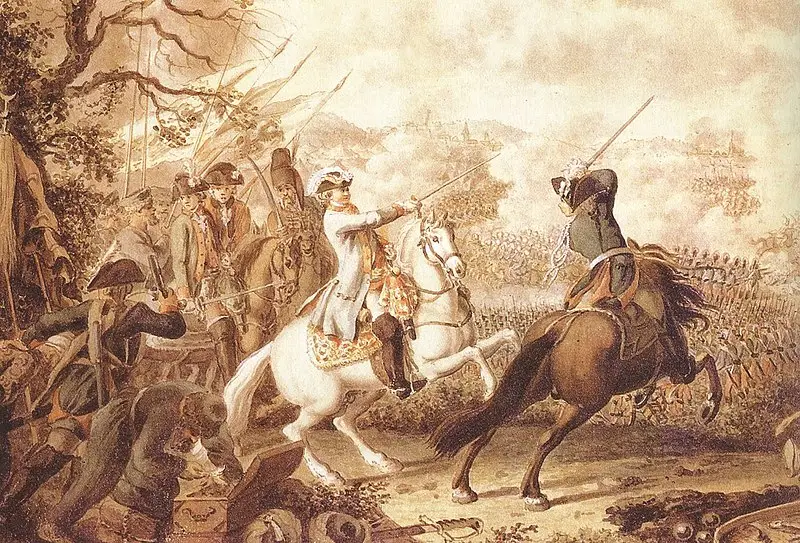
D. Khodovetsky “Battle of Cahul”
So, during the Seven Years' War, the young general Pyotr Rumyantsev already proved himself to be a great commander.
After the death of Elizabeth Petrovna, he was appointed commander of the Russian army, which, together with the Prussian corps allocated by Frederick the Great, was to attack Denmark in order to return the occupied possessions of Peter III - Schleswig and Dithmarschen. Possession of these lands allowed Russia to control the Danish Straits. And only after the liberation of these provinces, Peter III promised Frederick the Great to return East Prussia and Koenigsberg to him - not immediately, someday - if the permanent unrest “in Europe” suddenly disappeared.
However, the position of Catherine, who did not have the slightest right to the Russian throne, was so precarious that after the murder of her husband, she did not dare to insist on fulfilling the terms of the agreement with Frederick and gave him East Prussia without any conditions. Russian troops almost fled, abandoning already equipped warehouses with fodder and provisions, and this is very reminiscent of the “flight” of the Russian army from the territory of the former GDR under Yeltsin.
And Pyotr Rumyantsev at that time was no longer a commander - he resigned when he became convinced of the veracity of the news about the death of the legitimate Emperor Peter III. Rumyantsev also really disliked Catherine’s all-powerful favorite, Grigory Orlov. He “reciprocated,” and therefore it seemed that the military career of the hero of the article was over.
However, in January 1763, he suddenly received a letter from Catherine, in which she asked him to return to service. And in 1764 he was appointed governor-general of Little Russia. Rumyantsev held this position until 1781 and did a lot for the full integration of these lands into the empire.
On the eve of a new war
It must be said that Catherine II cannot in any way be called a great strategist. The numerous wars that our country waged during the reign of this empress - with Turkey, Sweden, the Polish-Lithuanian Commonwealth - always began unexpectedly for St. Petersburg and at the most inopportune moment. And only the valor of the Russian soldiers and the leadership talents of their commanders redeemed the diplomatic failures of Catherine II and her ministers. The hero of our article became one of these “rescuers” and “cleaners”.
Ottoman Turkey was dissatisfied with the results of the last war of 1735–1739, in which the Russian armies of Minich and Lassi won a number of victories and greatly devastated the Crimea, seriously undermining the military capabilities of this vassal khanate to the sultans.
The results for the Russians turned out to be very modest - just the return of Azov and recognition of the title of empress for Anna Ioannovna, but revanchist sentiments at the court of Sultan Mustafa III were very strong.
In addition, the international situation seemed favorable. On February 29, 1768, the anti-Russian Bar Confederation was formed in Poland, and in March, King Stanislav Poniatowski was forced to ask his former mistress, Catherine II, for help.
And the Confederates were supported by France and Austria. These states were allies of Russia in the Seven Years' War, and Grand Duke Peter Fedorovich (the future Emperor Peter III) then tried in vain to explain to his aunt Elizabeth that a war against Prussia in alliance with these countries not only does not meet the interests of Russia, but harms them:
That is exactly what happened.
The French sent Charles Francois Dumouriez to Poland, who began serving during the Seven Years' War and received 22 wounds in just one battle with the British at Klosterkamp. It was Dumouriez who in 1768 developed a plan to capture Corsica, for which he received the rank of colonel - and therefore Napoleon Bonaparte, born in 1769, turned out to be a French subject. In 1770, Dumouriez arrived in Poland and actually led the military forces of the Confederates, but was defeated by Suvorov.
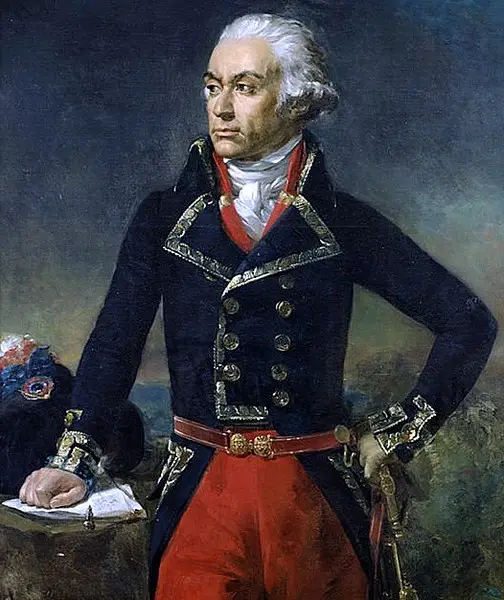
Portrait of Dumouriez by Rouillard
Let's say a few more words about this man.
In revolutionary France, Dumouriez became minister of foreign affairs and was instrumental in declaring war on Austria. Leading an army, he defeated the Austrians at Valmy, and then, after the victory at Jemappes, captured the territory of modern Belgium - his name can be found among the names of prominent French commanders under the Arc de Triomphe in Paris.
Dumouriez's adjutant was the future Napoleonic marshal Etienne Jacques Alexandre Macdonald. However, then Dumouriez decided to send his army to Paris to restore the constitutional monarchy, but did not receive support from the troops and fled to Austria in April 1793.
In addition to helping the Polish confederates, the French also pushed the Porte into a war with Russia in every possible way, generously financing the Sultan, bribing viziers and providing enormous assistance in the reorganization and training of troops, modernization of fortifications and artillery.
The French also provided assistance to the mysterious impostor - “Princess Tarakanova”, who, in their opinion, was supposed to lead a corps of Polish and French “volunteers” in Constantinople and, having gone to the front, appeal to the Russian army to come over to its side. However, False Elizabeth only managed to get to Ragusa (Dubrovnik), where she settled in the house of the French consul.
The British (Russia's opponents in the Seven Years' War!) rendered Russian the fleet all possible assistance in his movement from the Baltic to the Mediterranean Sea. And three British diplomats did their best (as if they were their own) to help Alexei Orlov in his hunt for “Princess Tarakanova.”
The English envoy in Naples, William Hamilton (husband of the famous mistress of Admiral Nelson), not only refused the adventurer money, but forwarded her letter to the English consul in Livorno, John Dick, so that he would give it to Alexei Orlov, whose squadron was based in this city. From that moment on, the impostor was doomed - Alexey Orlov always achieved his goal.
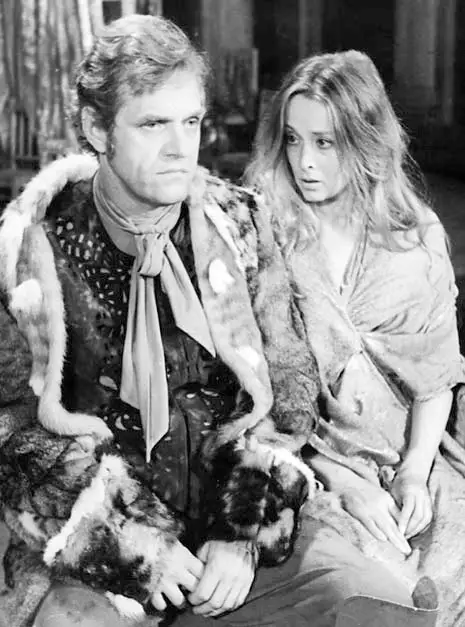
Performance of the Mossovet Theater "The Tsar's Hunt", 1977: Margarita Terekhova as Princess Tarakanova and Leonid Markov as Alexei Orlov
But the impostor ran out of money, and her creditors simply did not let her leave Rome - so that she could go to a meeting with Orlov, the debts of “Tarakanova” were paid by the English ambassador in this city, Jenkins. And the consul John Dick, already familiar to us, gave shelter to False Elizabeth in Livorno. And then the British received a ship in Plymouth with the captured rival of Catherine II, knowing full well that she was on board.
The damned question arises again: why and why an enslaving and extremely unprofitable agreement was concluded with Austria, because of which, in the Seven Years' War, Russia was forced to fight against Prussia and England, who then wanted peace with our country, and even on the side of such treacherous and hypocritical “allies” "?
Let's return to Polish affairs.
The Confederates also turned to Ottoman Turkey for help, promising to give up Volhynia and Podolia.
The territories that the Poles were going to transfer to Turkey - Volyn (2) and Podolia (5):
This generosity was the last straw that pushed Sultan Mustafa III to enter the war with Russia.
Rumyantsev's war with the Ottoman Empire
The new (already the fifth) Russian-Turkish War, which is sometimes called the Rumyantsev War, began in 1768.
It was during this war that the Russian squadron of A. Orlov and G. Spiridov burned the Turkish fleet in Chesme Bay - June 24–26 (July 5–7), 1770. And the expression “Chesme disaster” even appeared in the Turkish language (just as the word “Berezina” entered the French language).
And during this war, Suvorov won his first high-profile victories. Since 1769, with the rank of brigadier, he fought in Poland against the troops of the Bar Confederation, winning victories in the battles of the village of Orekhovo, Landskrona, Zamosc and Stolovichi, and captured Krakow Castle.
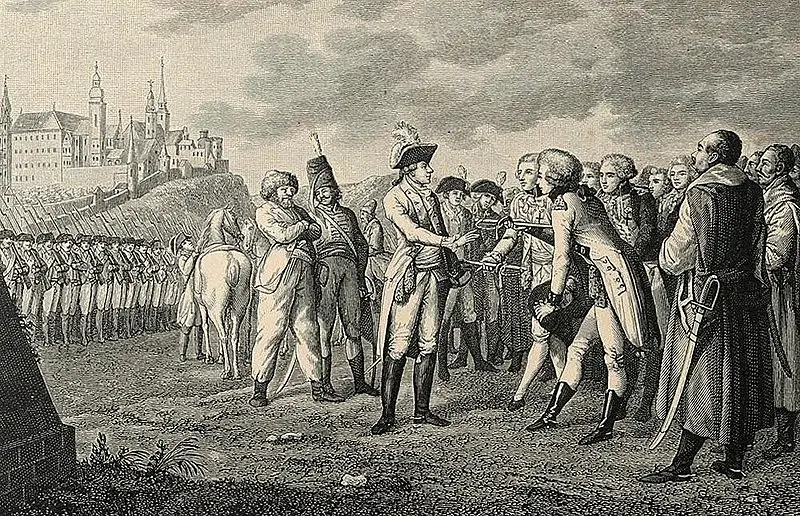
In Schubert's engraving, French officers give their swords to Suvorov during the capitulation of Krakow
It all ended with the first partition of Poland.
Austria then received Galicia - 1 square meters. km and 509 population.
Prussia annexed Western Prussia without Torun and Gdansk - 660 sq. km and 600 population.
Russia got eastern Belarus - 1 square meters. km and 693 population.
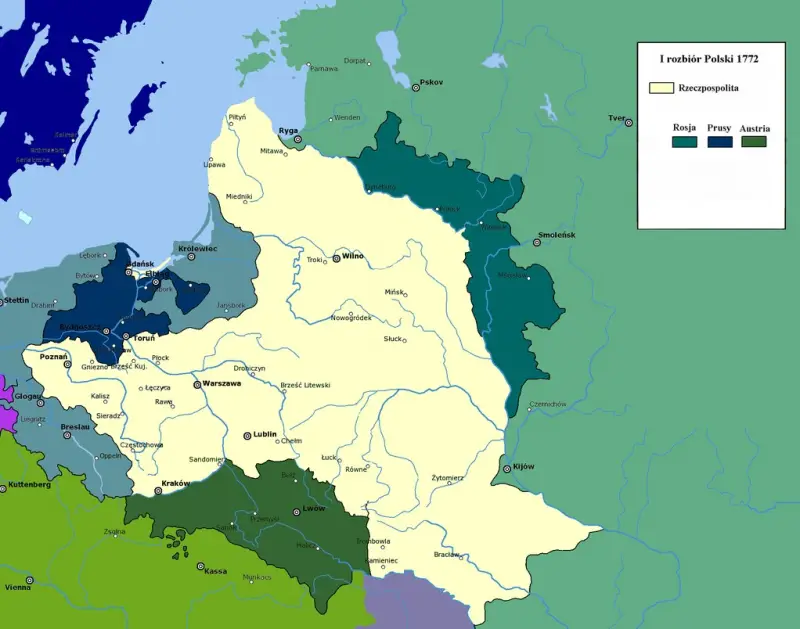
The first section of Poland
But this was, as they say, just a test of strength. Only in 1773, Major General Suvorov was transferred to Rumyantsev’s 1st Army, but let’s not get ahead of ourselves.
A detachment of Haidamaks-Koliyas and their allied Cossacks, pursuing the Confederates, crossed the borders of the Ottoman Empire and attacked the cities of Balta and Dubossary, where the Poles tried to take refuge.
Russia, as, alas, often happened in its history, turned out to be unprepared for a new big war - after all, our country just recently emerged from the unnecessary Seven Years' War, in which its regular troops suffered heavy losses. The First Polish War continued, which was also not without losses. The Russian regiments had not yet been properly replenished, and the recruits who replaced the veterans were not properly trained.
In an effort to avoid conflict, Russian representatives, in the presence of the Turks, physically punished the perpetrators of this incident. However, this did not satisfy the Ottomans: they put forward a deliberately impossible condition - demanding the death penalty, which was abolished in the Russian Empire.
Having received a refusal, the Turks broke off relations with Russia: on September 25 (October 6), 1768, the Russian ambassador A.M. Obreskov was imprisoned in the Seven Tower Castle, and on October 29 (November 10) an invasion army began to form. At the same time, the army of the Crimean Khanate, a vassal of Turkey, attacked Little Russia.
In Russia, two additional recruitments were carried out in the fall of 1768. In addition, Catherine II approved Alexei Orlov's plan to send a squadron of ships of the Baltic Fleet to the Mediterranean Sea to try to raise an uprising of Christians on the Balkan Peninsula.
The beginning of hostilities
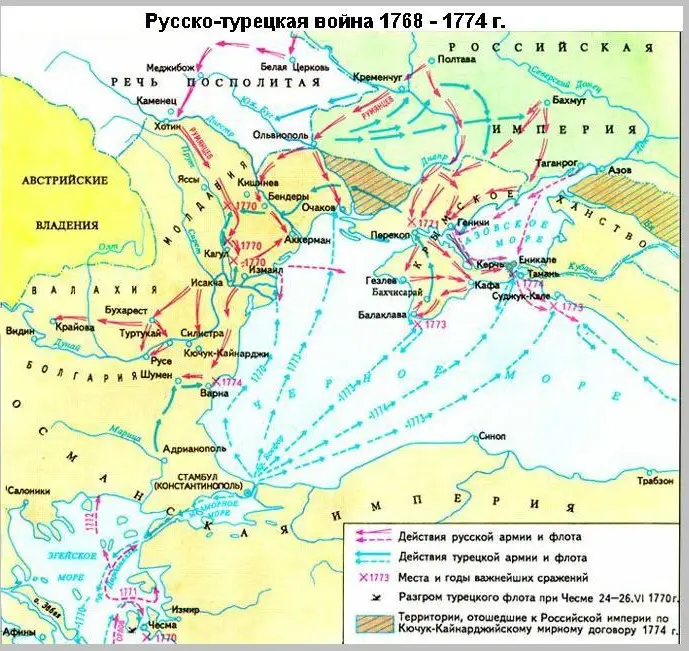
Russo-Turkish War 1768–1774 on the map
Three Russian armies were formed on the territory of Little Russia.
The main importance was attached to the First, whose commander was appointed General-in-Chief A. M. Golitsyn. It was intended for action against the Turks, and was to be joined by the Third Army of General Olitz. Rumyantsev became commander of the Second Army, which was supposed to protect the southern borders from the Crimean Tatars.
The fighting began in January 1769, when the Khan's army attacked Slavyanoserbia and the Novorossiysk province - this raid was the last for the Krymchaks. The Russians responded by occupying Taganrog and gaining free access to the Sea of Azov.
In April, Golitsyn’s main army crossed the Dniester and approached Khotin, but due to the lack of siege artillery, it soon retreated to Podolia. Rumyantsev went to Elisavetgrad (Kropivnitsky) in May. The Turks, in turn, having crossed the Danube and Prut, tried to cross the Dniester, but were driven back by the vanguard units of Prince Prozorovsky. Golitsyn again besieged Khotin - and again unsuccessfully.
Dissatisfied with his actions, Catherine II sent him into retirement; ironically, Golitsyn received this order just at the moment when the Turkish army had already been driven back to Iasi and the Ryabaya Grave, and Khotin capitulated.
Rumyantsev was now appointed commander of the First Army; he handed over the Second Army to General-in-Chief P. Panin, whose son would become one of the organizers of the conspiracy against Emperor Paul I.
In the same year, the First Squadron of Russian warships left Kronstadt for the shores of the Mediterranean Sea, and Vice Admiral Senyavin in Voronezh began to form the Don (or Azov) flotilla. The troops of the opposing sides retreated to winter quarters, but the 17-strong cavalry corps of General Shtofeln carried out a successful raid on Moldavia and Wallachia, which ended with the capture of local anti-Russian rulers, and then at the beginning of 1770 defeated the Turks at Focsani and repelled their attack on Bucharest and Giurzha.
By that time, Rumyantsev’s character had changed significantly for the better, and he himself was taking measures to restore order and tighten discipline.
This case was described in the 1st issue of the Russian Archive magazine for 1863:
It was difficult to wean the barichs of that time from lordship. Down jackets and dressing gowns were constantly being fiddled with. When traveling, some carried a metreska with them...
The hardest part was dealing with the dressing gowns. No matter how much it was forbidden, those who loved to pamper themselves, albeit secretly, still did not lag behind the dressing gowns.
And then one day Rumyantsov, early in the summer morning, leaving the tent (it was in July), noticed some careless officer who was making his way somewhere between the tents in a dressing gown. Rumyantsov called him over.
The poor officer, seeing the Commander-in-Chief, was completely lost: but Rumyantsov encouraged him with kind words, entered into a conversation with him, and about completely foreign subjects. Having walked a few steps together, the encouraged officer wanted to take time off to go to his tent.
“Where are you in a hurry, my friend,” answered Rumyantsov, “it’s still quite early, come to me, I want to talk with you again.” There was nothing to do, we entered the tent of the Commander-in-Chief, who continued the conversation, also affably, and invited his guest to sit down.
It was necessary to obey, but the guest’s embarrassment intensified: he was completely confused in his speeches and blushed, too feeling the burden of the robe on his shoulders, while the commander-in-chief was dressed as he should.
The conversation continued, and every time the officer tried to leave, Rumyantsov held him back: sit, sit, Mr. Officer, you see that it’s still early, I’m alone and I’m bored; and your company gives me pleasure.
Time passed, and finally, various generals and other persons began to appear in the tent, with reports, all in full uniform; and there is only one guest in a dressing gown, and the commander-in-chief still continues to hold him, with the same affection.
He barely, barely managed to finally escape home.”
Loud victories of 1770
In 1770, the First Russian Army went on the offensive, first forcing the combined forces of Turkey and Crimea to retreat from the Ryabaya Mogila, and then on July 7 (18) Rumyantsev won his first major victory - at Larga (the left tributary of the Prut River). Russian troops were 2 times inferior in number to the Crimean-Turkish ones, commanded by Khan Kaplan-Girey (38 thousand versus 80 thousand).
Here Rumyantsev for the first time built troops not in one large square, but in several mobile ones (“divisional”), which made the Russian system more maneuverable. Having thrown back the Tatar cavalry, the Russians went on the offensive and overthrew the enemy, losing only 90 people killed (enemy losses - up to a thousand people).
Two weeks later, Rumyantsev’s army near the Cahul River entered into battle with the troops of the Grand Vizier Khalil Pasha. The balance of forces was simply indecent (about 20 thousand Russians opposed a 150 thousand enemy army, and in the rear there were also 80 thousand Tatars), and Rumyantsev actually found himself in the position of Peter I during his Prut campaign.
Instead of going into full defense, the Russians crossed the Trajan Wall and attacked the Turkish camp themselves. Separate squares were headed by generals Bruce, Baur, Repnin, Olits and Plemyannikov, and artillery pieces were placed in front. It seemed that the Turks had a chance to win when a selected 10-strong Janissary detachment struck Plemyannikov’s division and broke through the ranks, capturing two banners. Rumyantsev had to personally stop the fleeing soldiers.
And then Khalil Pasha, with a saber in his hand, unsuccessfully tried to stop his army, which was also attacked by its allies - the Kurds, who began to shamelessly rob the fleeing Turks.
Russian losses amounted to about one and a half thousand people, Turkish losses - up to 20 thousand.
The defeat of the Turks did not end with this: after 2 days, the vanguard units of Baur overtook the Ottoman army at the crossing of the Danube and completely defeated it. On the other side of the river, the vizier was able to gather only 10 thousand people - the rest simply fled.
In honor of the victory at Cahul, a commemorative medal was issued, and Rumyantsev received the rank of field marshal.
Later, A.S. Pushkin would call Rumyantsev “the Perun of the Kagul shores.”
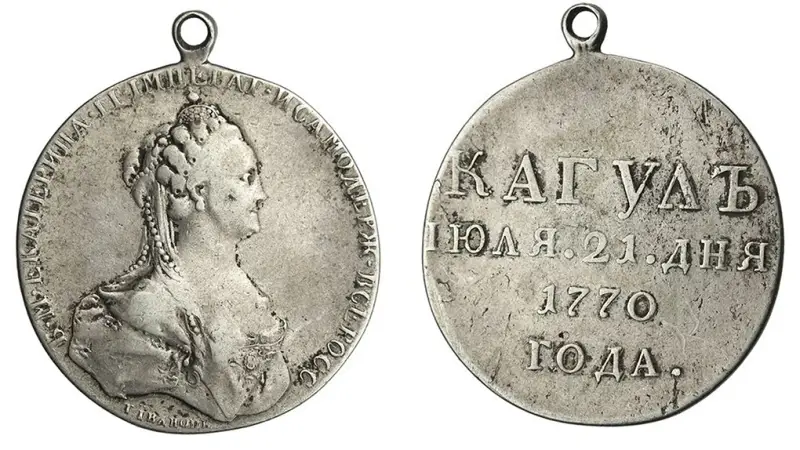
Medal "For the victory at Kagul"
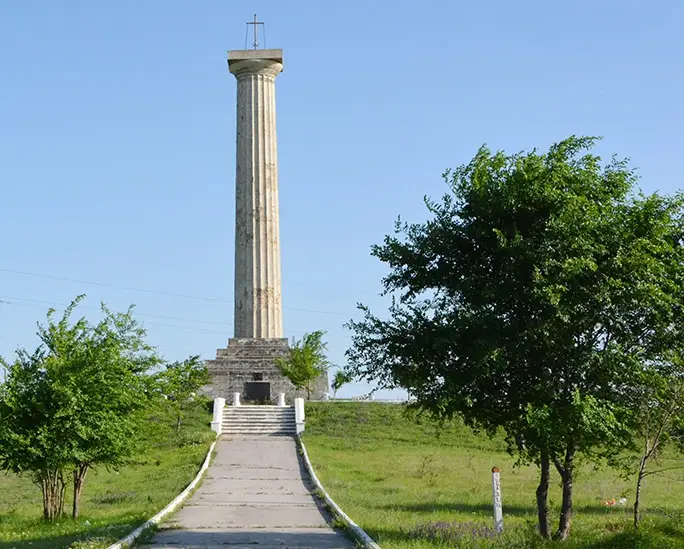
Vulcanesti. Monument in honor of the Battle of Cahul
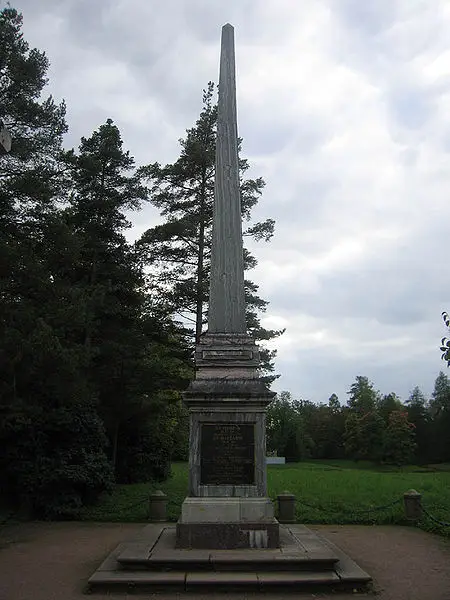
Kagul obelisk installed in the park of the Catherine Palace
In 1776, when, accompanying Grand Duke Pavel Petrovich, Rumyantsev found himself in Prussia, Frederick the Great staged maneuvers at which episodes of the Battle of Cahul were played out, and the Russian field marshal was awarded the Order of the Black Eagle.
Soon after the victory at Kagul, Russian troops occupied the fortresses of Izmail and Kilia.
But the garrison of the Brailov fortress held out until the beginning of November; during this siege, the Russians lost more people than in the Battle of Kagul - about two thousand people. Despite the high-profile victories, Rumyantsev never crossed the Danube that year. But in August 1770, he compiled the so-called “Rite of Service.”
And Panin’s Second Army was also not idle: after a two-month siege, on the night of September 15-16, the well-fortified fortress of Bendery was taken by storm: the Turks lost up to 5 thousand people killed, about 11 thousand surrendered.
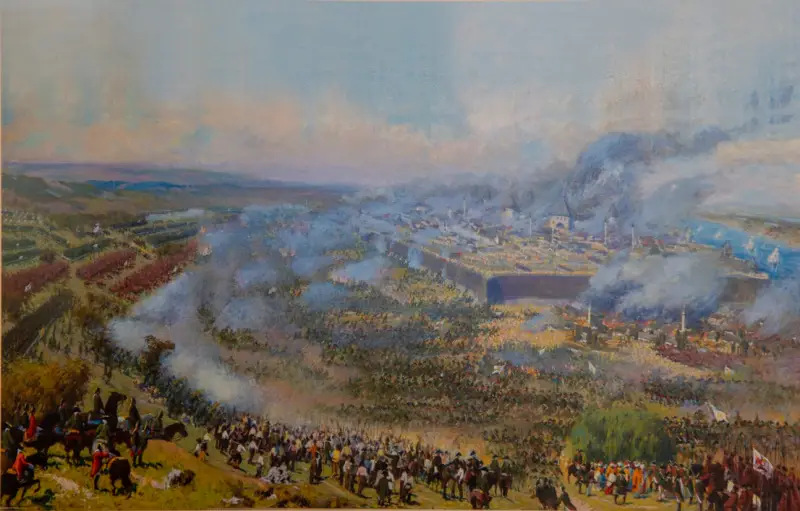
V. Slobodzinsky. The beginning of the assault on the Bendery fortress in 1770
The losses of Panin’s army also turned out to be very large, about 6 thousand people were injured, 1 died.
And on June 24–26 (July 5–7) of the same year, the Russian squadron under the command of Chief General Alexei Orlov and Admiral Grigory Spiridov destroyed the Ottoman fleet in Chesma Bay.

Battle of Chesma, diagram
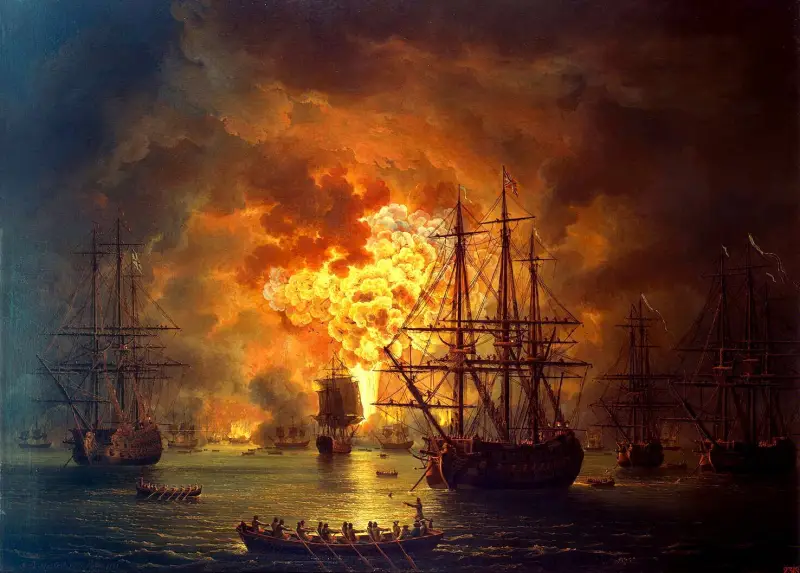
Y. F. Hackert “The Death of the Turkish Fleet in the Battle of Chesme”
The Turkish minister Resmi Efendi in his notes put Alexei Orlov on a par with Pyotr Rumyantsev, calling both great commanders of Catherine II. He wrote about the defeat of the Ottoman fleet:
And Baron Tott, a French agent in Constantinople, reported to Paris:
In the next article we will continue and finish the story about the Russian-Turkish War of 1768–1774, and also talk about the new appointments of Pyotr Aleksandrovich Rumyantsev and the last years of his life.
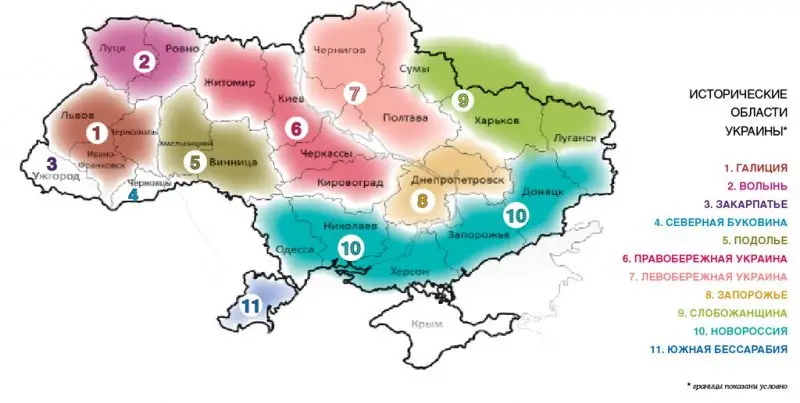
Information